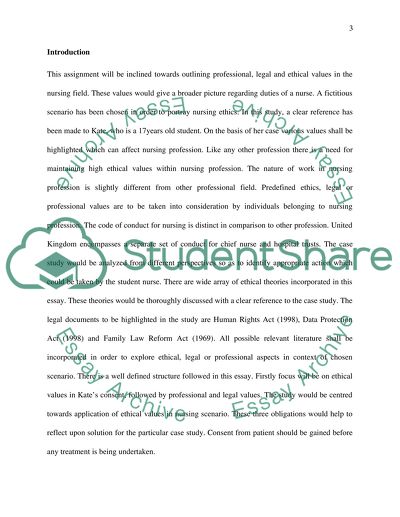Cite this document
(“Professional Values,Ethics and Law Essay Example | Topics and Well Written Essays - 3000 words”, n.d.)
Retrieved from https://studentshare.org/nursing/1695800-professional-valuesethics-and-law
Retrieved from https://studentshare.org/nursing/1695800-professional-valuesethics-and-law
(Professional Values,Ethics and Law Essay Example | Topics and Well Written Essays - 3000 Words)
https://studentshare.org/nursing/1695800-professional-valuesethics-and-law.
https://studentshare.org/nursing/1695800-professional-valuesethics-and-law.
“Professional Values,Ethics and Law Essay Example | Topics and Well Written Essays - 3000 Words”, n.d. https://studentshare.org/nursing/1695800-professional-valuesethics-and-law.


